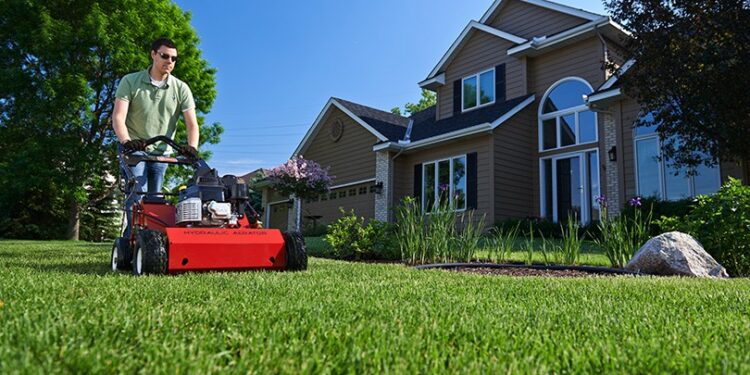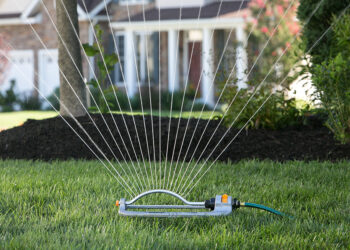Maintaining a lush, healthy lawn requires various care techniques, and one essential practice is aeration. This process involves perforating the soil to allow nutrients, water, and air to penetrate the grassroots, promoting a vibrant lawn. But the question remains: how often should you aerate your lawn to achieve optimal results?
Determining the frequency of lawn aeration hinges on several factors that influence your yard’s specific needs. Factors such as soil type, grass variety, climate, and usage patterns are pivotal in deciding the aeration schedule.
Signs Your Lawn Needs Aeration
Recognizing when your lawn needs aeration is crucial. Signs like thatch buildup, compacted soil hindering root growth, and poor water drainage suggest a need for aeration. These indicators signal the necessity to enhance soil quality and revive the health of your lawn.
How Often Should You Aerate Your Lawn?
The frequency of lawn aeration varies based on multiple factors. Seasonal considerations, grass types, and soil conditions impact the recommended aeration schedule.
Generally, cool-season grasses benefit from aeration in early fall or spring, while warm-season grasses thrive with aeration during late spring or early summer.
Evaluating soil conditions by conducting a simple soil test aids in determining if aeration is needed. If the soil feels compacted or water isn’t penetrating quickly, it might be time to aerate.
Best Practices for Aerating Your Lawn
Using suitable tools and techniques is crucial for adequate aeration. Core aerators or spike aerators are common choices. Aeration timing, typically when the soil is slightly moist but not overly wet, ensures optimal results.
Benefits of Regular Lawn Aeration
Regular aeration offers numerous benefits to your lawn. It enhances air circulation, improves nutrient absorption, and stimulates robust root growth. These advantages contribute significantly to the overall health and appearance of your lawn.
Common Mistakes to Avoid in Lawn Aeration
Avoiding common mistakes in the aeration process is as vital as performing it. Over-aerating can stress the grass, while incorrect aeration patterns might not yield the desired results.
Can I DIY or Hire A Specialist
The decision to aerate your lawn or hire a specialist often depends on various factors, including your comfort level with lawn care tasks, the size of your lawn, and the equipment available to you.
DIY Lawn Aeration : Pros
- Doing it yourself can save money on hiring a professional.
- You can choose the timing and method that suits your schedule.
- It’s an opportunity to learn and engage in lawn care personally.
Cons
- Renting or owning the right equipment might be necessary.
- A more extensive lawn might require considerable time and effort.
- Proper technique is crucial for adequate aeration.
Hiring a Specialist: Pros
- Professionals have experience and knowledge in lawn care.
- They can complete the job quickly and efficiently.
- Specialists usually come equipped with the necessary tools.
Cons
- Hiring a specialist can be more expensive than doing it yourself.
- Scheduling may be dependent on the specialist’s availability.
- You might miss the personal engagement with your lawn.
Ultimately, the choice between DIY aeration and hiring a specialist depends on your comfort level, time availability, budget, and the specific needs of your lawn.
DIY could be rewarding if you enjoy hands-on tasks and have the necessary tools. However, hiring a specialist might be the best option if you prefer convenience and lack the time or equipment.
Bottom Line
Determining how often to aerate your lawn requires considering various factors. By understanding these elements and adopting proper aeration techniques, you can ensure your lawn remains healthy and thriving throughout the year.
FAQs
How can I tell if my lawn needs aeration?
Look for signs like thatch buildup, compacted soil, or water drainage issues.
Is it possible to aerate the lawn too often?
Over-aerating can stress the grass, so following the recommended guidelines is essential.
Can I aerate my lawn during any season?
Aeration timing varies based on grass type and seasonal considerations.








